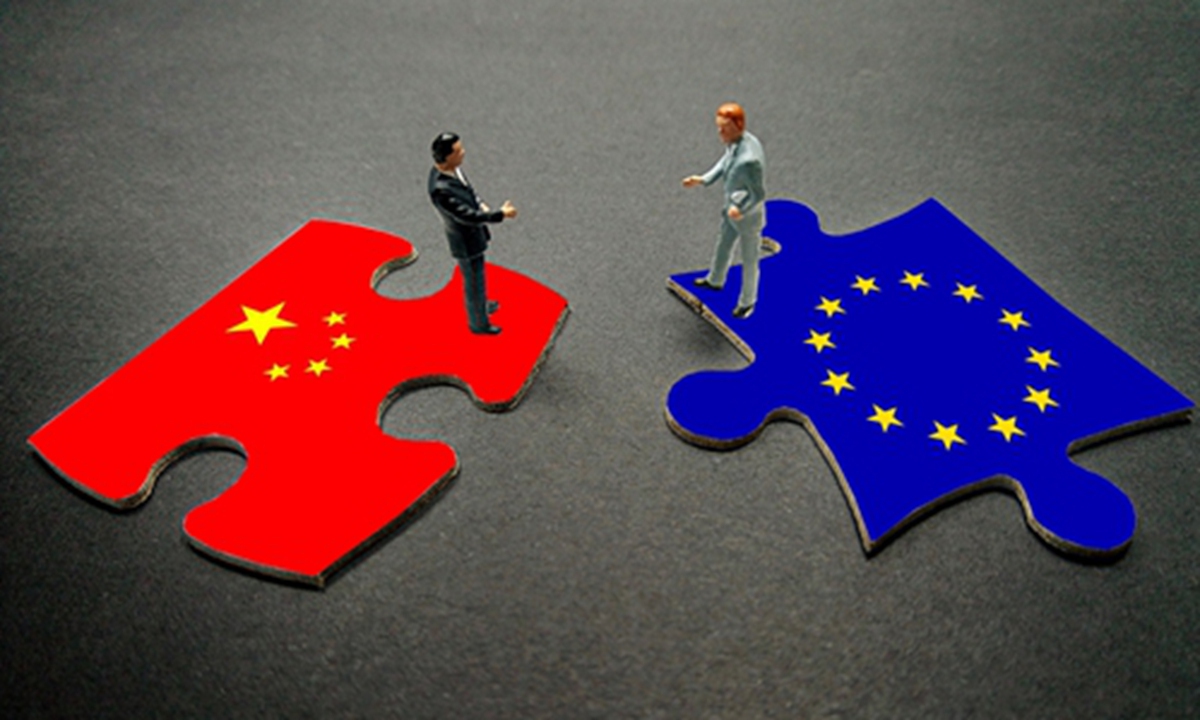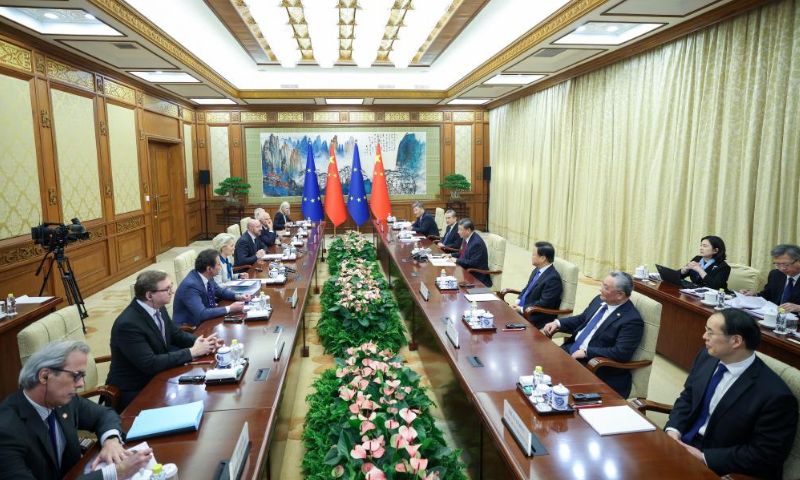
Photo: VCG
There is undoubtedly plenty of room for cooperation between China and the EU. No matter what, there won't be the same level of tension between the two sides as there is between China and the US. This is because China's rise does not pose a geopolitical threat to Europe, and protecting hegemony is a strategic obsession only for the US. Although there is seen to be a division between the West and the rest of the world, this division is gradually becoming blurred.
The EU is most concerned with security and its economy, but its security rival is not China, and its economic interests are closely tied to China. When the EU accuses China of "dumping" and "overcapacity," it wants to gain more benefits.
The main difference between China and EU countries is ideology. Some European countries often have conflicts with China on human rights issues, and the "anti-China forces" there are very loud in their criticism. One reason for this is that Europe is in decline, and European countries are relatively small. China's comprehensive strength far surpasses theirs, and it is economically impossible for them to confront China head-on. Showing off their different "values" and finding a sense of superiority can be a way to achieve psychological balance, and "human rights" can become a tool for diplomatic "competition" with China.
Europe still has some top firms, such as ASML, a Dutch company based in Veldhoven. There is also Germany's manufacturing industry, as well as Airbus. However, overall, Europe's competitiveness is undoubtedly declining. Since the beginning of the 21st century, Europe has been on the sidelines of the internet technology revolution and the current boom in artificial intelligence. Europe does not have large internet companies, and its communication technology companies have been left behind by others. If it were not for ASML, Europe would almost be "shaved bald" in the current cutting-edge global technology competition.
However, we must be clear that real interests are more powerful, and closer ties between China and Europe will bring enormous benefits to both sides. Europeans, I believe, will not be confused about this.
China strongly supports European integration, and this support comes from the heart as we hope for a multipolar world and the weakening of American hegemony. Although the US does not openly oppose European integration, deep down it is displeased and often engages in covert actions to cultivate "loyalists" in Europe. During the Iraq War, there was a serious disagreement between the US and Europe, and Washington openly promoted the distinction between "New Europe" (central and eastern Europe) and "Old Europe" (western Europe), which angered the major European countries.
Perhaps it can be said that China cannot expect to have a close political relationship with the EU, but there is a possibility of establishing closer political ties, although unstable ones, with certain individual countries. We cannot expect the EU to align with China against the US on key issues, as Europe relies on the US for security and has deep-rooted connections with the US. Europe will not abandon the US in favor of China amid the China-US confrontation. However, it is important to note that the EU is not the same as the US. Terms like "the West" or "the Western world" are often used, but their accuracy is questionable. While the EU may not remain neutral between China and the US, it holds a strategic position that could potentially find a middle ground. Therefore, efforts should be made to transform "the West" into "the US, the EU, and others," and to expand cooperation with the EU while reducing confrontation between China and Europe.
The economic relationship between China and Europe involves a bargaining process, with both sides compromising to some extent. Mutual benefit should be the guiding principle. The EU hopes that China will lean more toward the EU's position on the Ukraine issue, but it understands that China has its own national interests and cannot exert pressure on Russia in the way the EU desires. The Ukraine issue is not an obstacle between China and the EU. The EU advocates for "de-risking" when it comes to its economic dependence on China, but how far it can go in this regard does not solely depend on the will of a few leaders. Therefore, there is no fundamental crisis in China-Europe relations.
Ideological friction, or differences in values, is a longstanding issue between China and Europe that needs to be managed. Although China and the EU have different historical origins in terms of values, modern society shares many common values that are sufficient for countries with different systems to coexist in a friendly manner. Some people, mainly in Europe and the US, have exaggerated the value differences between China and Europe. Their purpose is to widen the rift between China and Europe, and to disrupt normal exchanges.
China must not fall into this trap and should promote the recognition of common values with Europe. It should consciously reduce incidents of friction over values and minimize opportunities for anti-China forces to exploit and amplify such conflicts, preventing them from framing the situation as a strategic conflict between China and Europe. In other words, the strategic relationship between China and Europe is relatively calm, and cooperation is highly attractive to both sides. It should not be portrayed as tense. All forces within China should be vigilant, and this should become a pivot of China's strategic wisdom.
The author is a media professional. opinion@globaltimes.com.cn


